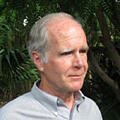The derailment of the Norfolk Southern train in East Palestine, OH on February 3, 2023, and the subsequent burning of chemicals contained in the train cars, released large quantities of hazardous chemicals into the environment. News about this health and environmental disaster is developing daily. Affected communities face questions about both short- and long-term health and environmental effects of the chemicals generated by this disaster.
One of the chemicals released and burned was vinyl chloride monomer (VCM), the building block from which polyvinyl chloride (PVC) plastic is made. VCM is a known human carcinogen, and PVC is associated with health and environmental hazards throughout its life cycle, from production through use and disposal. In addition to the communities affected directly by the derailment, many communities across the country face on-going health and environmental harms associated with PVC production.
Ted Schettler, MD, MPH reviewed the toxicity and environmental fate of the chemicals spilled, some of which were subsequently intentionally and unintentionally burned, creating conditions for creation of — and community exposure to — novel toxic compounds. He summarized initial and subsequent government and community responses and ongoing challenges as the full extent of this event and its consequences are still unfolding.
Molly Jacobs, MPH explored how, in addition to ensuring support and protections for affected communities, we can reduce our dependence on toxic chemicals and the manufacturing processes that generate them. She discussed a recent editorial she and co-authors published in Scientific American and briefly described lessons from pollution prevention programs and new policy initiatives that are aiming to transform the chemical sector by attracting greater investment into safer and more sustainable products and processes.
This webinar was moderated by Sharyle Patton, Director of the Biomonitoring Resource Center.
Featured Speakers
 Ted Schettler, MD, MPH is Science Director, Science and Environmental Health Network, and a member of CHE’s Advisory Team. Ted has worked extensively with community groups and non-governmental organizations throughout the US and internationally, addressing many aspects of human health and the environment. He has served on advisory committees of the US EPA and National Academy of Sciences. Ted is co-author of Generations at Risk: Reproductive Health and the Environment, which examines reproductive and developmental health effects of exposure to a variety of environmental toxicants. He is also co-author of In Harm's Way: Toxic Threats to Child Development, which discusses the impact of environmental exposures on neurological development in children, and Environmental Threats to Healthy Aging: With a Closer Look at Alzheimer' and Parkinson's Diseases. Ted has published numerous articles in the medical literature, and is frequently quoted in the popular press. He received his MD from Case-Western Reserve University and a master's degree in public health from the Harvard School of Public Health. He practiced medicine for many years in New England.
Ted Schettler, MD, MPH is Science Director, Science and Environmental Health Network, and a member of CHE’s Advisory Team. Ted has worked extensively with community groups and non-governmental organizations throughout the US and internationally, addressing many aspects of human health and the environment. He has served on advisory committees of the US EPA and National Academy of Sciences. Ted is co-author of Generations at Risk: Reproductive Health and the Environment, which examines reproductive and developmental health effects of exposure to a variety of environmental toxicants. He is also co-author of In Harm's Way: Toxic Threats to Child Development, which discusses the impact of environmental exposures on neurological development in children, and Environmental Threats to Healthy Aging: With a Closer Look at Alzheimer' and Parkinson's Diseases. Ted has published numerous articles in the medical literature, and is frequently quoted in the popular press. He received his MD from Case-Western Reserve University and a master's degree in public health from the Harvard School of Public Health. He practiced medicine for many years in New England.
 Molly Jacobs, MPH is a Senior Research Associate and Project Manager at the Lowell Center for Sustainable Production. Her work focuses on advancing policy and programs to prevent chronic disease risks associated with environmental and occupational exposures. She has authored numerous research translation papers, book chapters and reports synthesizing the state of the science linking environmental and occupational exposures and with chronic diseases, including asthma and cancer, as well as health risks associated with emerging technologies and materials, such as wood biomass energy and nanomaterials. Molly’s research also focuses on the application of alternatives assessment in science and policy and works to advance the methods and practice of alternatives assessment as a critical disease prevention and environmental protection strategy. Prior to joining Lowell Center, Molly worked at the Massachusetts Department of Public Health investigating disease clusters associated with exposure to local environmental contamination.
Molly Jacobs, MPH is a Senior Research Associate and Project Manager at the Lowell Center for Sustainable Production. Her work focuses on advancing policy and programs to prevent chronic disease risks associated with environmental and occupational exposures. She has authored numerous research translation papers, book chapters and reports synthesizing the state of the science linking environmental and occupational exposures and with chronic diseases, including asthma and cancer, as well as health risks associated with emerging technologies and materials, such as wood biomass energy and nanomaterials. Molly’s research also focuses on the application of alternatives assessment in science and policy and works to advance the methods and practice of alternatives assessment as a critical disease prevention and environmental protection strategy. Prior to joining Lowell Center, Molly worked at the Massachusetts Department of Public Health investigating disease clusters associated with exposure to local environmental contamination.
This webinar was hosted by the EDC Strategies Partnership, which is co-chaired by Sharyle Patton (Commonweal Biomonitoring Resource Center), Jerry Heindel and Sarah Howard (Environmental Health Sciences' Healthy Environment and Endocrine Disruptor Strategies HEEDS), Génon Jensen (Health and Environment Alliance, HEAL), and Rachel Massey (Commonweal CHE, Collaborative on Health and the Environment). To see a full list of past calls and webinars related to EDCs and listen to or view recordings, please visit our partnership page.
